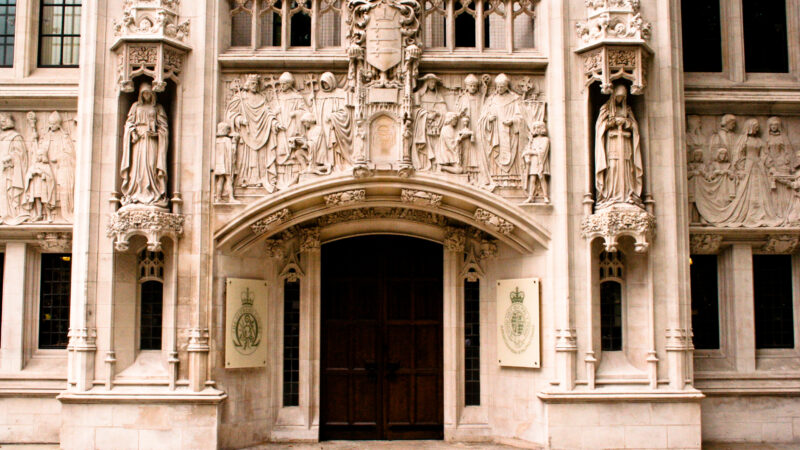
Given the rage of the Tory government and its supporters in the media at the judicial interventions since the Brexit vote – who could forget the Daily Mail’s “Enemies of the People” headline? – it was hardly surprising that the courts should find themselves in the firing line once Boris Johnson secured a comfortable majority.
The text of the Queen’s Speech was bland, saying only that “a constitution, democracy and rights commission will be established”. As to the purpose and scope of such a commission, we must turn to the 2019 Tory manifesto, which pledged:
“After Brexit we also need to look at the broader aspects of our constitution: the relationship between the government, parliament and the courts; the functioning of the royal prerogative… and access to justice for ordinary people…
“We will update the Human Rights Act and administrative law to ensure that there is a proper balance between the rights of individuals, our vital national security, and effective government. We will ensure that judicial review is… not abused to conduct politics by another means or to create needless delays.
“In our first year we will set up a constitution, democracy & rights commission that will examine these issues in depth, and come up with proposals to restore trust in our institutions and in how our democracy operates.”
Taken at face value, who would argue with such worthy, if platitudinous, sentiments? But put them in context, and you should hear alarm bells ringing loud and clear. Consider an administration so indifferent to the norms of our constitution that it has no qualms about, and is entirely unrepentant for, unlawfully proroguing parliament and in the process misleading the Queen. Add a generous helping of bitter resentment at its repeated public humiliation in the courts, stir in the Conservative Party’s inherent and visceral loathing of the Human Rights Act, and you have some sense of the potential scale of the impending assault.
I will be examining the Tory strategy more closely for LabourList over the course of the coming weeks and months as more detail of their proposals emerge. But given the political context in which and by whom this commission is being established, it seems clear that it will have three key goals: political control over the judiciary; ever tighter restriction over access to, and the scope of, judicial review; and weakening, if not abolition, of the Human Rights Act.
Early briefing, given prominent voice in the last few days by former Tory leader Michael Howard, proposes that appointment to the judiciary – and particularly to the Supreme Court – should be subject to political scrutiny. That would, of course, be anathema to the centuries-old and fiercely guarded tradition of judicial independence in this country.
Right-wing think tank Policy Exchange published what looks to be an influential discussion paper just before the New Year. Entitled – with no obvious sense of the irony – ‘Protecting the Constitution’, the report ominously recommends that the government “exercise existing ministerial powers in relation to judicial appointments, rejecting or requesting reconsideration of candidates where there are doubts about their suitability [and] legislate to increase ministerial involvement in judicial appointments”. Read that sentence aloud, reflect on those who might be expressing those doubts and what their criteria for suitability might be, and fear for the future.
Public funding for judicial review has been savagely cut in the last few years by successive Tory administrations, hence why the pivotal challenges on Brexit had to be brought by wealthy individuals or crowd-funded. We can expect that process to be accelerated. ‘Protecting the Constitution’ advises this government to “review the scope of judicial review and legislate to limit it where appropriate, reversing the effects of particular judgments by legislation when necessary”.
I would have been concerned enough by the proposal to limit the most fundamental mechanism that our constitution allows to prevent the executive from acting unlawfully or unfairly. That the same executive could simply set aside any finding by the courts with which it disagrees – like the Article 50 or the prorogation rulings – sends shivers down my spine.
The government’s plans for constitutional reform aren’t just the stuff of arid debate among lawyers. They will affect us all. Remember how significant the role of the courts, and the judiciary, has been in the last few years in holding the executive to account. Then consider how much more pivotal it will be now that Johnson has a commanding majority in parliament. That is why we must all play our part in protecting their independence and their powers.




More from LabourList
Paul Nowak column: ‘Labour must focus on the basics’
‘Labour’s two-child cap victory rings hollow while asylum-seeking children remain in poverty’
SPONSORED: ‘Unlocking pension power to boost the UK’s fortunes’